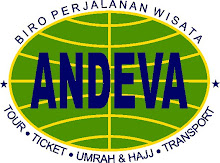Immigration Regulations
For a stay not exceeding 60 days, visas are not required for nationals of the Arab Emirates, Argentine, Australia, Austria, Belgium, Brazil, Brunei, Canada, Chile, Denmark, Egypt, Finland, France, Germany, Great Britain, Greece, Iceland, Ireland, Italy, Japan. Kuwait, Liechtenstein, Luxembourg, Malaysia, Malta, Maldives, Mexico, Morocco, Netherlands, New Zealand, Norway, Philippines, Saudi Arabia, Singapore, South Korea, Spain. Sweden, Switzerland, Taiwan (passport coded MEA or M), Thailand, Turkey, the United States, Venezuela and Yugoslavia. Entry and departure must he through the airports of Polonia (Medan), Batu Besar Batam, Simpang Tiga (Pekanbaru) Tabing (Padang), Soekarno-Hatta (Jakarta), Juanda (Surabaya), Ngurah Rai (Bali), Sam Ratulangi (Manadol) Pattimura (Ambon) Frans Kaisiepo (Biak), El Tari (Kupang) Soepadio (Pontianak) or Sepinggan (Balikpapan), Bandung and Ujung Padang, or through the seaports of Belawan (Medan), Batam, Bintan, Tanjung Priok (Jakarta), Tanjung Perak (Surabaya), Tanjung Mas (Semarang), Benoa and Padang Bai (Bali), Bitung (Manado) or Yos Sudarso (Ambon).
For other ports of arrival and departure, visas are required. Visas for a period of 30 days can he obtained from any Indonesian embassy or consulate overseas. For holders of Hong Kong Certificates of Identity, travel should be in tour groups and visas are issued by the Indonesian Consulate General in Hong Kong.
For nationals from other countries, other titan the above mentioned, tourist visas for 30 days may be obtained from any Indonesian Embassy or Consulate. Two photographs must be provided and a small fee is charged.
No employment is allowed on these visas or on the visa-free entry facility. All visitors must have passports valid for at least six months and proof of onward passage.
Health
Health standards are improving rapidly in Indonesia and good medical care is available in all the major centres. However, if you are extending your trip with a tour to the more remote parts of the archipelago it is wise to consult a professional for advice as to what precautionary measures maybe necessary.
Customs
Customs allow on entry a maximum of one litre of alcoholic beverages, 200 cigarettes or 50 cigars or 100 grams of tobacco, and a reasonable amount of perfume per adult.
There is no restriction on import and export of foreign currencies in cash, travellers cheques and other bank instruments which are fully convertible to Rupiah and vice versa. No more than Rp50.000 in Indonesian currency ran he taken in or out of the country.
Airport Tax
An airport tax is levied on all departing passengers on international flights. For those flights within Indonesia, airport taxes vary depending on airport of departure. An additional sum is levied for insurance on domestic routes if tickets are purchased in Indonesia.
Currency
In major centres, travellers cheques in US dollars are readily accepted and most hotels in tourist or commercial centres will accept major credit cards. In other areas, small denomination bills in Rupiah are advisable. The Rupiah comes in 100, 500, 1000, 5000, 10,000, 20,000 and 50,000 notes.
Time Zone
Indonesia is divided into three time zones: Western Indonesia Time (Sumatra, Java, west and central Kalimantan) is seven hours ahead of GMT. Central Indonesia Time (Bali, south and east Kalimantan, Sulawesi, Nusa Tenggara) is eight hours ahead of GMT. East Indonesia Time (Maluku, Irian Jaya) is nine hours ahead of GMT.
Clothing
With temperatures ranging between 20-350C, light, casual clothes are the most practical.
Natural fibres like cotton or linen are the most comfortable in Indonesia's often humid conditions.
Casual clothes are acceptable in must places and a lightweight suit and tie are usual for business or formal meetings.
Light cotton dresses are generally acceptable in most situations.
Batik is popular for both men's shirts and women's dresses.
Common Courtesies
A warm, generous people, Indonesians are always prepared to extend a warm welcome.
Handshaking is a customary greeting in Indonesia but avoid using your left hand. Also avoid using your left hand when giving or receiving anything, whenever possible. Using your index finger to summon a person is impolite.
Scanty clothing is not advisable in public places in deference to local customs. Shorts are not allowed in mosques and women should have their arms and head covered. Climbing over monuments or places of worship is considered highly disrespectful. In Bali, waist sashes should be worn when visiting temples.
Friday, January 25, 2008
Travel Information
Posted by ANDEVA TOURS & TRAVEL at 10:26 PM
Subscribe to:
Post Comments (Atom)

0 comments:
Post a Comment